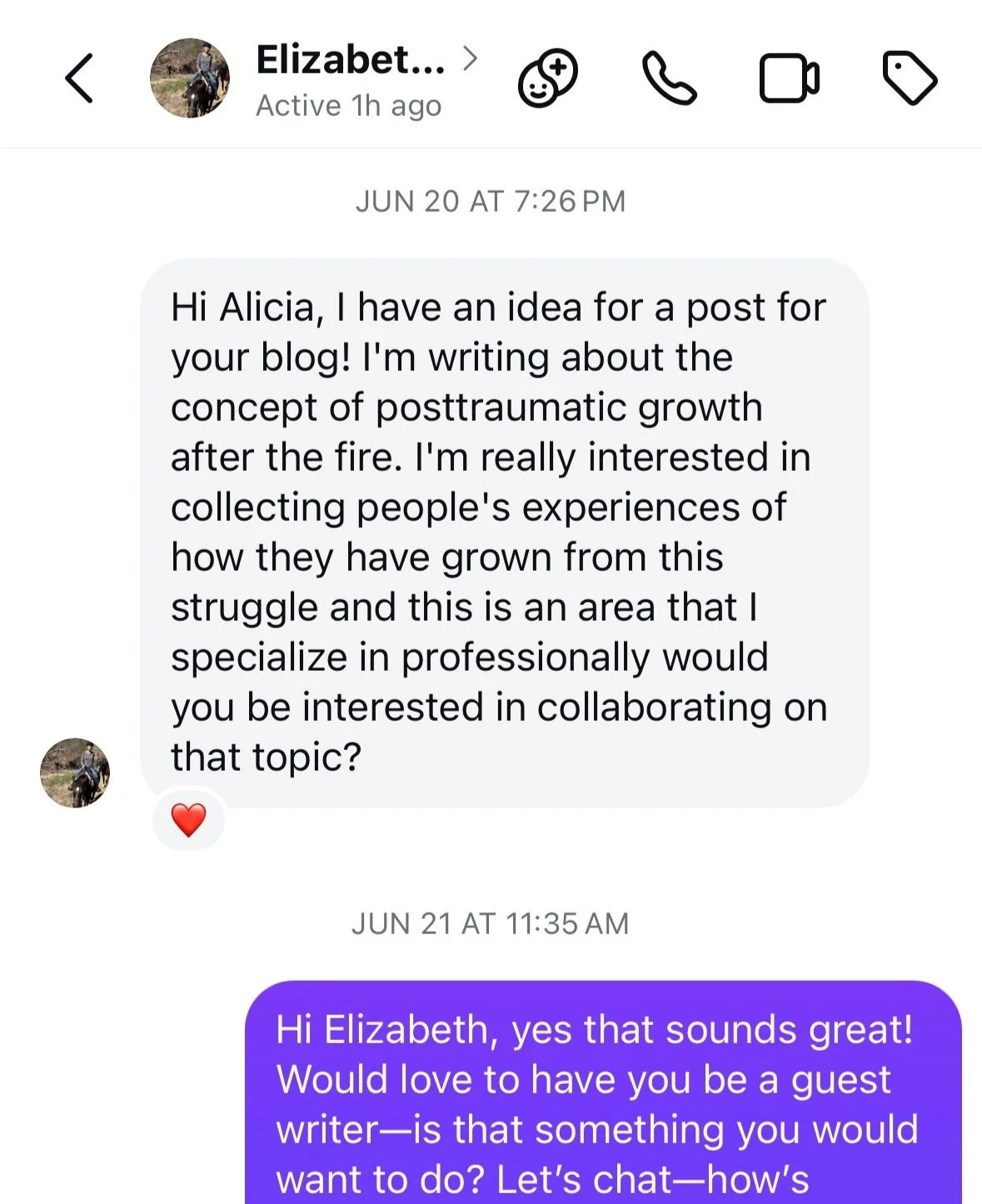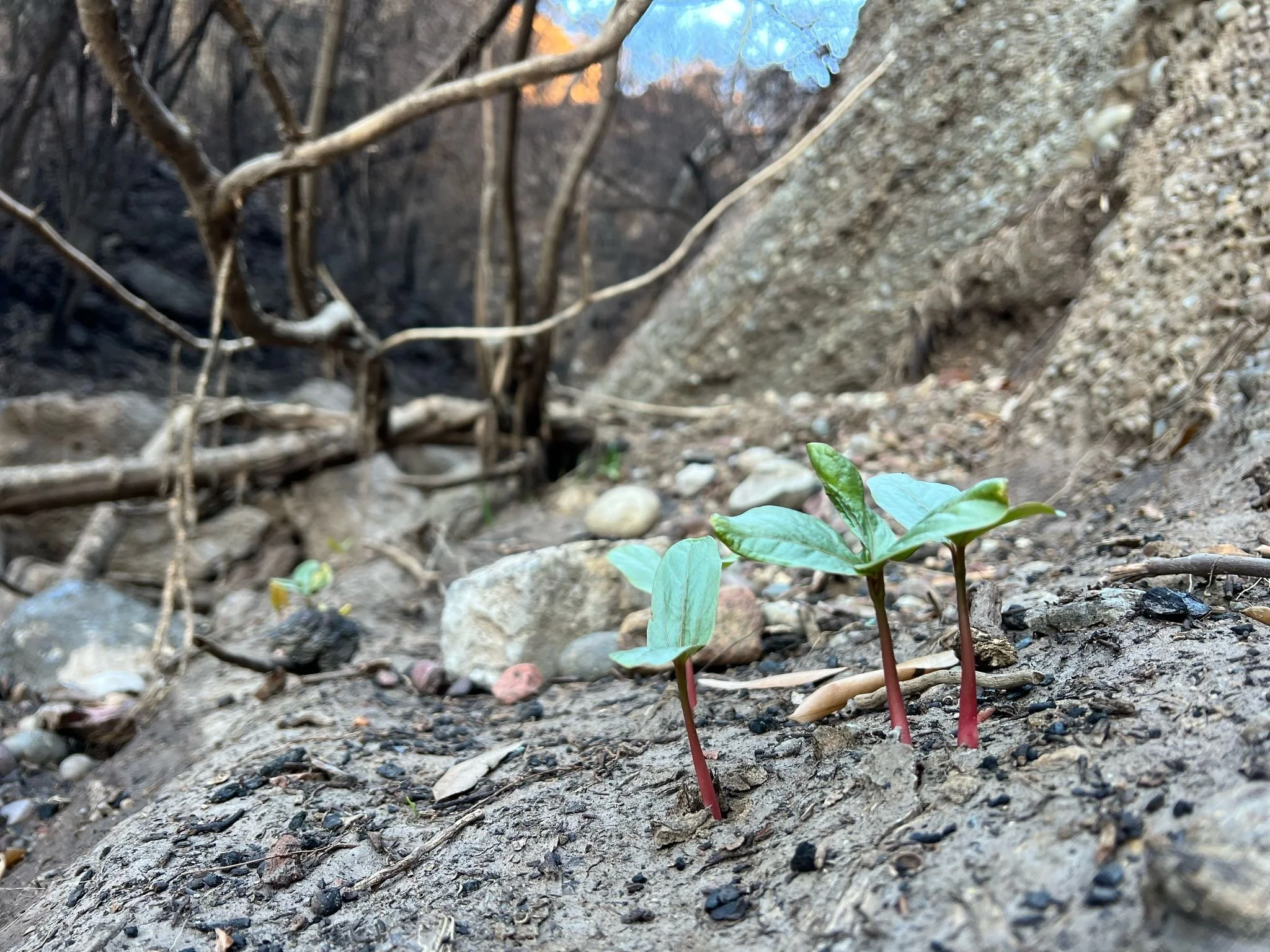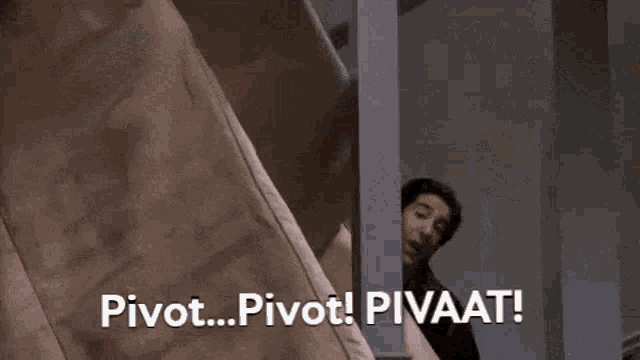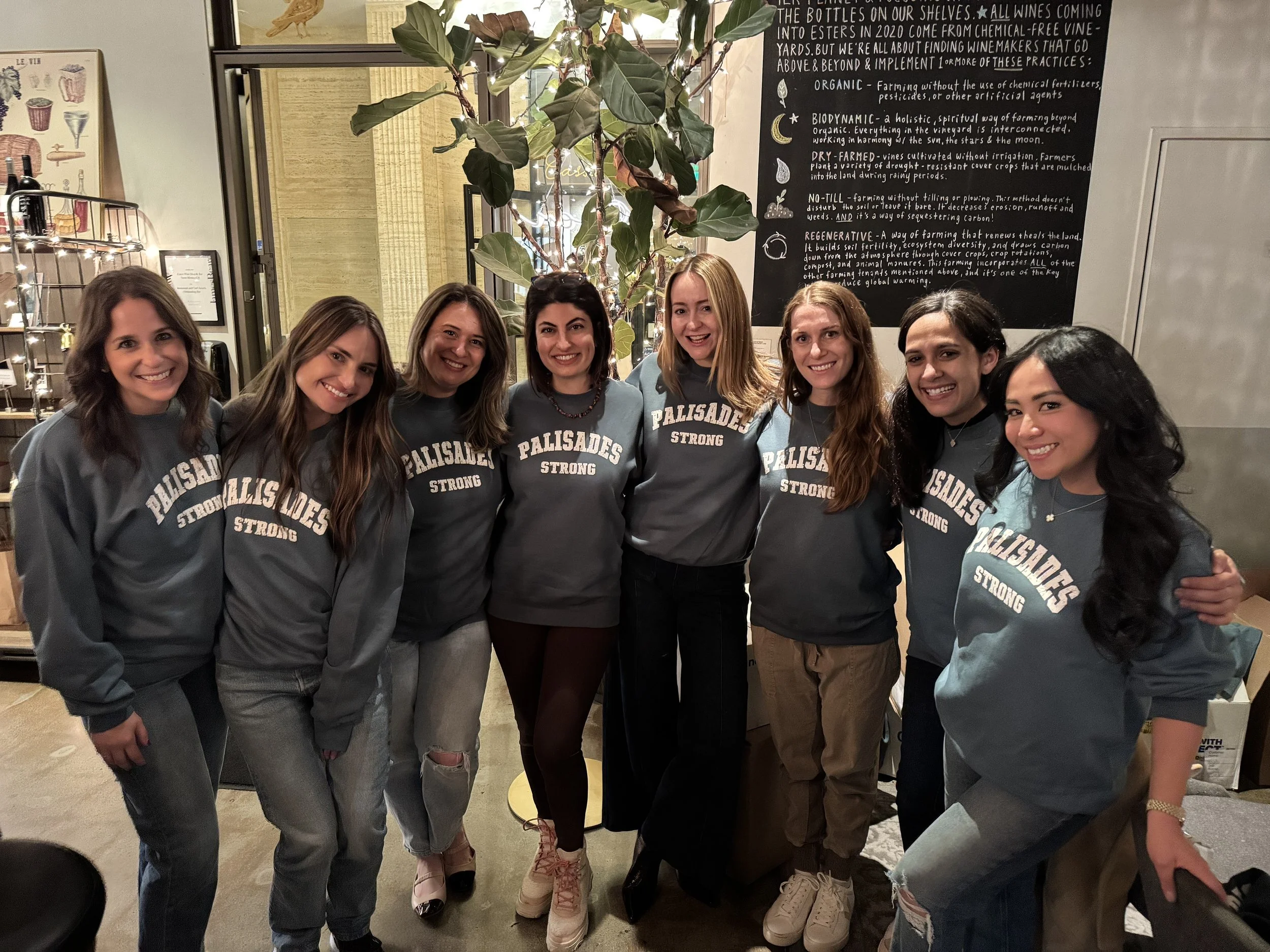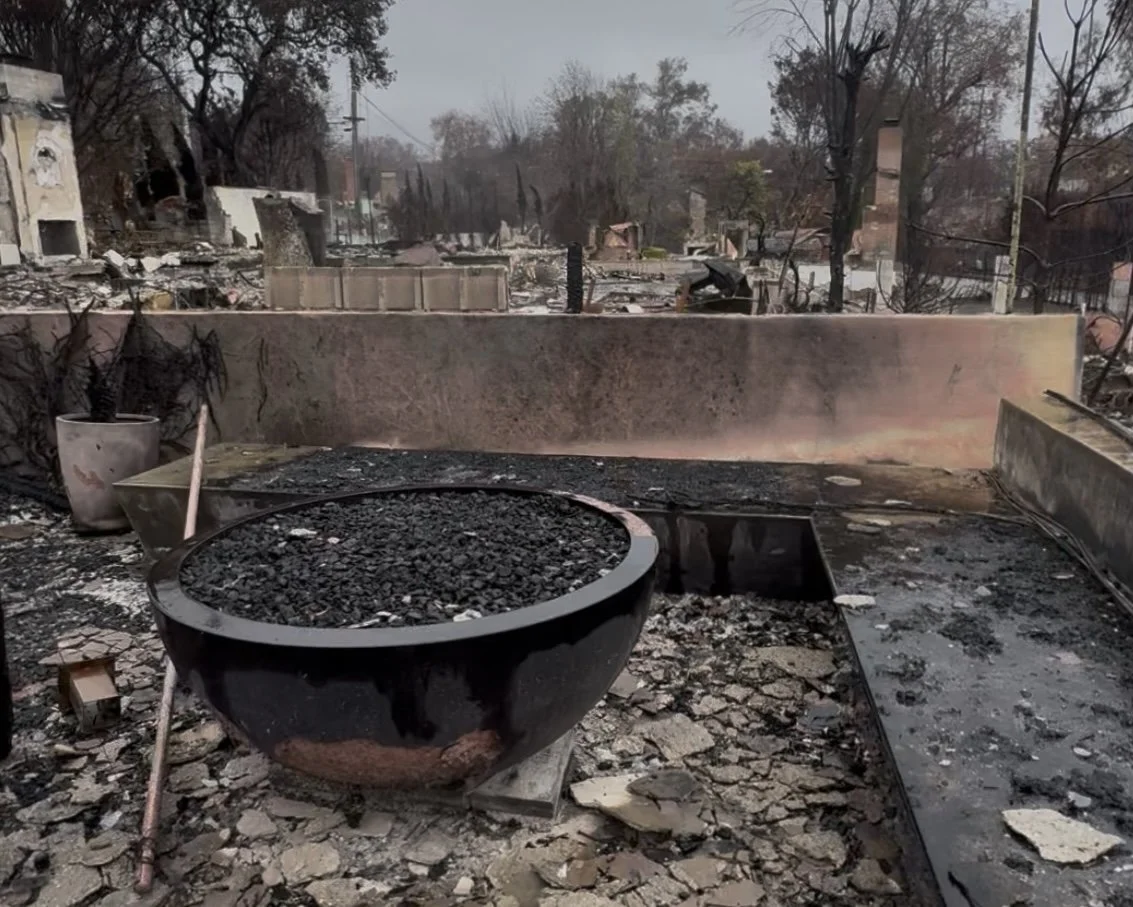Guest Series: Posttraumatic Growth After the Fire (Written With a Friend Who’s Actually Qualified to Explain It)
One of the strange perks of living through a fire (besides becoming an expert in air scrubbers and juggling 56 WhatsApp neighborhood group chats that you never asked to join) is finding out who your people are. Elizabeth was someone I casually knew before January 7. But after the fire, she became one of the few people whose texts I didn’t dread opening.
Beyond having the proper degrees and being incredibly smart—she also lived through this unique experience. She knows the research, the psychology, the terminology, and somehow explains it all in a way that makes you feel less like a head case and more like a human going through something massive. She sent me one of the first messages that made me feel not just “seen,” but understood.
So when she told me she was writing about Posttraumatic Growth, I was like—YES. And also: “Cool, but can we make it not sound like a syllabus?” Because the truth is, this concept? It’s powerful. It’s hopeful. It’s kind of life-affirming, actually. And we wanted to write something that felt like a friend walking you through it—ideally one who brings snacks and can pronounce “existential dread” with a smile.
She brings the brains. I bring the side commentary. Here’s what you need to know:
Reflecting on the Palisades Fire
Written by Elizabeth Salick, Psy.D x Alicia Dry Cohen
Even in the burn scar, something begins again. Found this in my camera roll from February—shared in one of the WhatsApp groups. If it’s yours, let me know so I can give proper credit.
It’s been six months since the Palisades Fire, and lately, I’ve been noticing something quietly powerful from the people I know in this community—friends, colleagues, even clients. Amid the chaos and loss, they’re starting to reflect on how this experience has changed them… and not all in bad ways.
A surprising number have said something along the lines of:
“Something shifted in me—and it’s not all bad.”
Can you relate? I know I can.
That shift has a name: Posttraumatic Growth.
What Is Posttraumatic Growth?
Remember that strange, messy moment after the COVID lockdowns lifted? Life was “open” again, and yes—some of us ran to restaurants, got haircuts, and never wanted to hear the word pivot again. But many of us also held onto something quieter:
A new appreciation for being alive. A slower pace. Less small talk, more realness.
(Also, a brief obsession with baking bread and questioning every life choice. Just me? Cool.)
That was growth—not in spite of trauma, but because of it.
Psychologists Richard Tedeschi and Lawrence Calhoun coined the term Posttraumatic Growth (PTG) in the '90s to describe just that: the kind of growth that emerges through struggle. They studied trauma survivors across different life events and found that—surprisingly—many people didn’t just bounce back. They bounced forward.
(Which is encouraging, especially if your resilience plan so far has been crying into pasta and pretending it’s “part of the process.”)
Let me be clear: This isn’t about silver linings or “everything happens for a reason.” Trauma is real. Pain is real. Growth doesn’t erase it—but it can grow alongside it. And that’s a really important distinction.
The Five Domains of PTG
Posttraumatic Growth tends to show up in five core ways:
Personal Strength – “I didn’t think I could handle that. But I did.”
Deeper Relationships – Less superficial, more soul-level. (My neighborhood mom group chat swings between grief counseling and meme dumps.)
Appreciation for Life – An awareness of what we do have--and an urgency to embrace it. (A client shared "time to get busy living your life")
Openness to New Possibilities – What if the detour was actually the destination?
Spiritual or Existential Growth – “I think about life differently now.” (My ‘why’ used to be a perfectly curated vision board. Now it’s something quieter—and arguably less sexy—like peace of mind and knowing my kids feel safe and happy.)
Studies show that up to 52% of trauma survivors report moderate to high levels of growth. That’s not a fluke—it’s a pattern.
What We’re Hearing in the Palisades
Since January, I’ve heard dozens of stories from people impacted by the fire. Different backgrounds, different circumstances—but similar emotional threads. Here are a few themes I’ve seen emerge:
Letting go of stuff (literally): There’s real liberation in owning less.
(If you’ve ever fantasized about a capsule wardrobe, this is your moment.)Surrendering control: Living with uncertainty has become… weirdly grounding?
(I used to freak out when I had a few unread personal texts, but now I get to it when I can)Clarified priorities: If it doesn’t matter, it doesn’t make the cut.
(I usually love throwing a whole production, but for Ava’s 2nd? Just cake, immediate family, no bounce house—and zero mom guilt.)Gratitude for the basics: Health, safety, loved ones.
(Also, a solid retinol and under-eye concealer—let’s be honest.)Stronger community bonds: Even from a distance, we’ve leaned in closer.
(Bonding over displacement, rebuilding, and our mutual fantasy of undergrounding power lines. You know—normal neighbor stuff. Bonus points if it happened while wearing #PaliStrong merch.)A shift in purpose: People are rethinking how they want to contribute.
Surprise at inner strength: “I can’t believe I got through that” has become a refrain.
Community bonds manifest in moments like our own Sisterhood of the Traveling Pants—except all our pants burned in the fire. But hey… we got these cute sweatshirts instead.
The “How” of Growth
So if you’re wondering how to encourage this kind of growth (without joining a silent meditation retreat or suddenly becoming a gratitude journal person), here are a few starting points:
Practice Altruism
Helping others is one of the fastest ways to reorient and find meaning. Check on your people. Donate where you can. Support a neighbor’s small business. Hold space. Text back.Look for Glimmers
Growth doesn’t always look like a breakthrough. It could be taking a breath before you snap, or walking outside instead of doom-scrolling Reddit. Glimmers are little signals that something in you is shifting.Reflect Together
Ask yourself if you’ve changed. Ask your partner, your kids. You may be surprised what they say—and how much you’ve already grown.
Stillness doesn’t mean nothing is happening. Leo sat still for 12 full seconds, so yes, something profound was probably unfolding.
One Last Thought
Our culture is (understandably) obsessed with trauma responses. We diagnose, label, and pathologize everything—which can be validating and helpful. But if we only focus on what’s broken, we miss what’s blooming.
Growth doesn’t cancel out loss. But naming it—seeing it—might be one way we start to feel whole again.
If you’re still in the thick of it, this is not your cue to “rise from the ashes” like a perfectly filtered phoenix. This is just permission to notice if, in between the insurance claims and the anxiety spirals, you’ve felt something else. A little more grounded. A little more honest. A little more you.
That’s growth. Even if it’s wrapped in smoke.
The fire pit survived. So did we. It’s seen stories, spilled wine, and the kind of mom nights that made this place feel like home.
